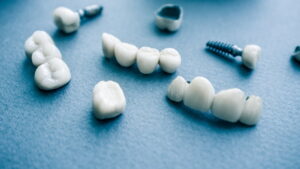When it comes to maintaining good oral hygiene, there are various factors to consider. Regular brushing, flossing, and routine dental check-ups are undoubtedly essential. However, another crucial element that often goes unnoticed is the role of fluoride in dental health.
Fluoride is a naturally occurring mineral that can be found in soil, rocks, and even in the water we drink. It is highly regarded for its ability to prevent tooth decay and strengthen tooth enamel. Let’s dig deeper into why this mineral plays such a vital role in maintaining good oral health.
Prevention of Tooth Decay
Tooth decay, also known as dental caries, is a widespread problem that affects people of all ages. It occurs when bacteria in the mouth produce acids that attack the tooth’s enamel, resulting in cavities. Fluoride plays a crucial role in preventing tooth decay by strengthening the enamel and making it more resistant to acid attacks.
Fluoride works by remineralizing the enamel, a process that repairs the damage caused by acid attacks. It helps to replenish the minerals, such as calcium and phosphate, that are essential for maintaining strong teeth. Regular exposure to fluoride strengthens the enamel, making it more resistant to acid erosion and reducing the risk of cavities.
Protection for All Ages
Fluoride is vital for the dental health of individuals at every stage of life. For infants and young children, fluoride can help in the development of strong and healthy permanent teeth. The mineral is incorporated into the tooth structure during formation, which makes the teeth more resistant to decay even before they emerge.
For teenagers and adults, when the teeth are fully formed, fluoride continues to provide protection against cavities. It can help reverse early tooth decay, prevent further damage, and ultimately reduce the need for more extensive dental treatments such as fillings or extractions.
Fluoride is especially crucial for older adults, as they may face additional oral health challenges. Many older adults are more prone to dry mouth due to various factors like medications or certain medical conditions. Dry mouth reduces saliva flow, which plays a crucial role in protecting teeth. Fluoride, in the form of toothpaste, mouthwash, or even professionally applied varnishes, can help combat the effects of dry mouth and protect the teeth from decay.
Sources of Fluoride
Fluoride is readily available from various sources, both natural and artificial. Many public water supplies have fluoride added to them, which has been proven to be a safe and effective community measure to prevent tooth decay. Drinking fluoridated water and using it for cooking or reconstituting infant formula is an effective and convenient way to ensure regular exposure to fluoride.
In addition to water, fluoride toothpaste is an essential tool for maintaining good dental health. Brushing with a fluoride toothpaste twice a day helps to deliver a concentrated amount of fluoride directly onto the teeth. It is recommended to use toothpaste that contains at least 1,000 parts per million (ppm) of fluoride for children, and 1,450-1,500 ppm for adults.
Professional dental treatments also offer a more concentrated dose of fluoride. Dentists may apply fluoride varnishes or gels during routine dental check-ups, especially for individuals at higher risk of cavities. These treatments provide an extra boost of fluoride to protect and strengthen the teeth.
Conclusion
In conclusion, the role of fluoride in dental health cannot be overstated. It is an essential mineral that helps prevent tooth decay and protects the teeth from acid attacks. Regular exposure to fluoride through various sources, such as fluoridated water, toothpaste, and professional treatments, helps maintain strong and healthy teeth throughout all stages of life.
Remember, while fluoride plays a significant role in dental health, it is essential to follow other oral hygiene practices, including regular brushing, flossing, and professional dental check-ups. By incorporating fluoride into your daily routine, you can take a proactive approach to protect your teeth and maintain a beautiful, healthy smile.




